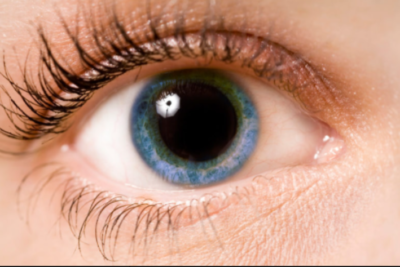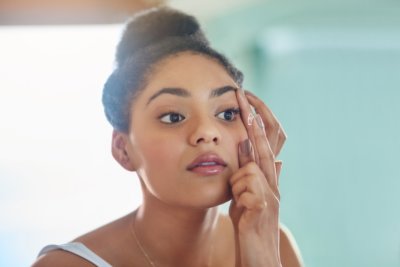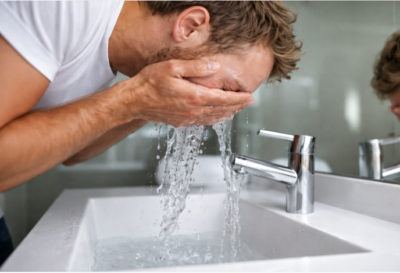Eye swelling is a common concern that can affect people of all ages. Many ask, “Why is my upper eyelid swollen?” or worry about lower eye swelling and puffiness.
While swelling can often be mild and temporary, it may also indicate infection, injury, or an underlying medical issue. Understanding eye swelling causes, its symptoms, and when to seek medical advice is important for protecting both comfort and vision.
This guide explores what eye swelling is, the main reasons for eye swelling, home remedies, medical treatments, and prevention tips.
What is Eye Swelling and Why Does It Happen?
Eye swelling, also called periorbital oedema, refers to puffiness or enlargement around the eyelids and surrounding tissues. It occurs when excess fluid, inflammation, or trauma affects the delicate tissues around the eyes. Both the upper eyelid and lower eyelid swelling may result from irritation, infection, allergies, or systemic health conditions.
In most cases, swelling is temporary and resolves with rest, hydration, or simple remedies. However, persistent or painful swelling requires medical evaluation to rule out conditions such as infections or eye injuries.
Common Causes of Eye Swelling Explained
There are several causes of swelling around the eyes, ranging from mild irritation to serious health problems. Below are the most frequent causes of eye swelling.
Allergies and Eye Swelling
Allergy-induced eye swelling is among the most common triggers. Exposure to pollen, dust mites, pet dander, or mould can cause itchy, red, and puffy eyes. Allergic reactions trigger histamine release, leading to fluid build-up and swollen eyelids. Seasonal allergies (hay fever) often worsen these symptoms.
Infections Leading to Eye Swelling
Eye infections causing swelling include conjunctivitis (pink eye), blepharitis, styes, and cellulitis. Viral or bacterial infections can produce redness, discharge, pain, and significant swelling. Infections require timely treatment, as untreated cellulitis or keratitis may spread and threaten vision.
Trauma or Injury to the Eye
Swelling from eye injury can occur after accidental bumps, scratches, or foreign objects entering the eye. Trauma leads to inflammation and fluid accumulation, often alongside redness and bruising. Prompt medical care ensures no internal eye damage has occurred.
Fluid Retention and Swollen Eyes
Water retention and eye swelling are other frequent reasons. Poor sleep, hormonal changes, excessive salt intake, or dehydration can cause puffiness, especially under the eyes. This form of lower eye swelling is usually temporary and improves with lifestyle adjustments.
Recognising Symptoms of Eye Swelling
Understanding eye swelling symptoms helps identify whether the issue is mild or requires urgent medical attention.
Common Symptoms to Watch For
Mild cases usually present with puffy eyelids, mild redness, or a feeling of heaviness. Additional symptoms of eye swelling include itching, watery eyes, tenderness, or warmth around the eyelids. Discharge or blurred vision may indicate infection.
How to Differentiate Between Mild and Severe Swelling
Severe eye swelling is usually associated with pain, fever, reduced vision, or difficulty opening the eye. This may indicate a severe infection, orbital cellulitis, or an allergic reaction that requires immediate treatment. Differentiating mild puffiness from urgent cases ensures proper care.
When Should You See a Doctor for Eye Swelling?
While minor puffiness often improves with rest, there are times when professional care is vital. Seek medical advice if:
- Swelling is sudden, severe, or persistent
- There is pain, fever, or pus discharge
- Vision becomes blurred or reduced
- The swelling follows trauma or surgery
Knowing when to see a doctor for eye swelling ensures a timely diagnosis of infections, blocked tear ducts, or systemic illnesses.
How to Treat Eye Swelling at Home
Many cases can be relieved with simple eye swelling home treatment strategies.
- Apply a cold compress or chilled cucumber slices to reduce puffiness.
- Keep your head elevated while sleeping to limit fluid retention.
- Use over-the-counter antihistamines if allergies are the cause.
- Avoid rubbing the eyes, which worsens irritation.
- Drink plenty of water and reduce salt intake to minimise swelling.
These natural remedies answer common queries, such as how to reduce eye puffiness safely at home.
Medical Treatments for Eye Swelling
When home remedies are insufficient, medical care may be required.
Eye Drops or Ointments
Doctors may prescribe lubricating drops, antihistamine eye drops, or antibiotic/antiviral ointments depending on the underlying cause. For bacterial conjunctivitis or blepharitis, targeted medication reduces infection and swelling.
When Surgery is Necessary
In rare cases, surgery may be required. For example, abscess drainage or treatment of eyelid cysts helps reduce persistent swelling.
Orbital cellulitis may require hospital admission and intravenous antibiotics. Surgery is only recommended for severe or complicated cases.
Prevention Tips for Avoiding Eye Swelling
Preventing swelling is often easier than treating it. Here are simple strategies to prevent eye swelling:
- Get adequate sleep and rest regularly
- Manage seasonal allergies with prescribed medications
- Wash your hands before touching your eyes to avoid infections
- Stay hydrated and limit high-salt foods
- Protect eyes from dust, sunlight, and physical injury
- Remove contact lenses before sleeping and clean them properly
Following these steps lowers the risk of both upper eyelid swelling and lower eyelid swelling.
Conclusion
Eye swelling can result from allergies, infections, injuries, or lifestyle factors. While mild puffiness is usually harmless, severe cases may indicate infections or trauma that need urgent medical evaluation. Understanding the causes of swelling around the eyes, recognising the warning symptoms, and knowing what causes eye swelling empowers you to take timely action.
If you are asking, “What causes swelling around the eyes, and when should I worry?”, the safest approach is to seek professional advice when symptoms persist, worsen, or interfere with vision. Maintaining good hygiene, getting proper sleep, and controlling allergies are key steps in prevention.










